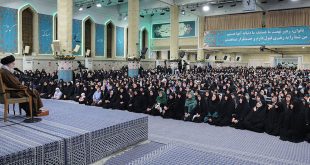In this book, Mashal Saif explores how contemporary ‘ulama, the guardians of religious knowledge and law, engage with the world’s most populated Islamic nation-state: Pakistan.
In mapping these engagements, she weds rigorous textual analysis with fieldwork and offers insight into some of the most significant and politically charged issues in recent Pakistani history. These include debates over the rights of women; the country’s notorious blasphemy laws; the legitimacy of religiously mandated insurrection against the state; sectarian violence; and the place of Shi’as within the Sunni majority nation. These diverse case studies are knit together by the project’s most significant contribution: a theoretical framework that understands the ‘ulama’s complex engagements with their state as a process of both contestation and cultivation of the Islamic Republic by citizen-subjects. This framework provides a new way of assessing state – ‘ulama relations not only in contemporary Pakistan but also across the Muslim world.
About the Author
Mashal Saif is an assistant professor in the Department of Philosophy and Religion at Clemson University, South Carolina.
Table of Contents
- The clerics and the council: contesting religious authority
2. Sovereignty between God and the state: debating Muhammad’s honor and blasphemy
3. Questioning state identity and legitimacy: a case for religiously mandated insurrection
4. Seeking security: Shi’a ‘Ulama and state formation
5. Minority aspirations and the state: Shi’a political theology.
Bibliographic Information
Title: The ‘Ulama in Contemporary Pakistan: Contesting and Cultivating an Islamic Republic
Author(s): Mashal Saif
Publisher: Cambridge University Press
Length: 350 pages
ISBN: 978-1108839730
Pub. Date: October 2020
 Ijtihad Network Being Wise and Faithful Muslim in the Contemporary World
Ijtihad Network Being Wise and Faithful Muslim in the Contemporary World
